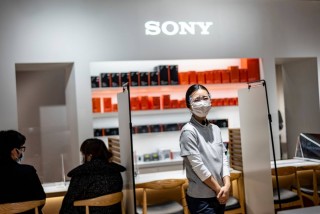Loading
Search
▼ Pandemic Proves A Blessing For Some Firms, But Ruin For Others
- Category:Other
Japanese firms are facing two drastically different business conditions as a result of the coronavirus pandemic, with those struggling amid weak demand seeing no way out of the crisis.
While manufacturers are generally seeing booming business thanks to demand from domestic consumers opting to stay home amid the pandemic, many outside the realm of manufacturing, such as airlines and railway operators, are facing an uphill battle.
By Wednesday, 1,291 companies listed on the Tokyo Stock Exchange’s first section that close books in March had announced their consolidated earnings reports for April-December 2020, according to SMBC Nikko Securities Inc.
Their combined sales and profits both declined from a year before, according to the brokerage house.
Of the total, some 420 firms, about 60% of which are manufacturers, revised up their bottom line forecasts for the full year to March, outnumbering some 70 companies that revised down their estimates.
Firms that have been able to tap new demand from consumers avoiding unnecessary outings amid the pandemic saw especially rosy performances.
Electronics and entertainment giant Sony Corp. saw strong sales of its PlayStation gaming consoles, enjoying a roughly 90% year-on-year surge in its net profit in April-December. The firm expects its annual net profit to top ¥1 trillion for the first time in the year ending next month.
Sony also benefited from the success of its blockbuster anime movie “Demon Slayer: Mugen Train.”
Another winner was Nintendo Co., which saw its April-December operating profit nearly double year-on-year on the back of strong sales of its Animal Crossing: New Horizons video game. The company revised up its full-year net profit estimate to ¥400 billion from ¥300 billion.
The popular game software “helped boost demand for game consoles as well,” Nintendo President Shuntaro Furukawa said.
SoftBank Group Corp. became the first Japanese company to log a net profit of over ¥3 trillion in April-December, thanks to a global stock market rise that boosted valuation profits at its investment fund.
Major automakers, such as Toyota Motor Corp., Honda Motor Co. and Nissan Motor Co., were backed by the revival of the Chinese and U.S. auto markets. Toyota raised its full-year net profit estimate to ¥1.9 trillion from ¥1.42 trillion.
On the other hand, the the pandemic delivered a harsh blow to industries directly affected by limits the deadly virus placed on people’s movement.
East Japan Railway Co., or JR East, now expects to incur a net loss of ¥450 billion for the full year, worse than a previously forecast loss of ¥418 billion.
With its railway business revenue expected to fall below the initially expected level due to the declaration of a fresh virus state of emergency by the government, JR East President Yuji Fukasawa said that demand “will not recover during this fiscal year.”
Japan Airlines, which has also been hit hard by the lack of travel, expects a net loss of ¥300 billion for the year.
“We didn’t expect demand for domestic flights to falter due to a resurgence of coronavirus infections,” JAL Senior Managing Executive Officer Hideki Kikuyama said.
KNT-CT Holdings Co., the operator of Kinki Nippon Tourist-brand travel agencies, saw its debts exceed assets by ¥3.4 billion at the end of 2020.
Facing a looming crisis that could see it delisted if its net debt status continues for two consecutive years, the company launched a voluntary redundancy program to accelerate structural reforms. Many employees have applied for the program.
“It’s a painful decision,” KNT-CT President Akimasa Yoneda said.
Experts said the coronavirus situation will continue to significantly affect industries such as railway operators, airlines and eateries, with the key question now being how long it will take for travel and spending to revert to pre-pandemic levels.
“The focus is when economic activity will return to normal,” SMBC Nikko equity strategist Hikaru Yasuda said.
A full revival of the economy depends on how many people receive coronavirus vaccinations and whether concerns over the Tokyo Olympic and Paralympic Games can be allayed, industry sources suggested.
The Summer Olympics and Paralympics, seen as a key driver of growth, were postponed by one year from 2020 due to the pandemic. However, it remains unclear if they will still be held this summer, though the Japanese government has remains steadfast that the games will go on in some form.
- February 14, 2021
- Comment (0)
- Trackback(0)


